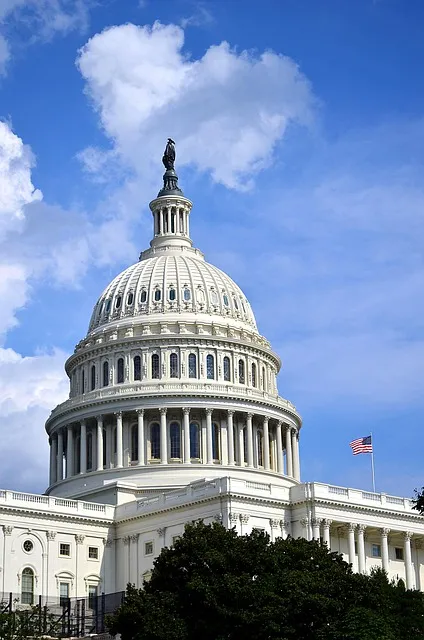Capitol Hill, democracy's epicenter, hosts a vibrant lobbying scene where powerful interests shape public policy through strategic advocacy. The Capitol Hill Kaiser Counselor is a key player, guiding clients through complex legislative processes, fostering relationships with lawmakers, and crafting persuasive narratives. Ethical considerations are paramount, emphasizing the importance of life balance and executive coaching for objective decision-making. Effective lobbying involves screening bills, targeting key committee members, and honing message delivery skills to influence policy in areas like healthcare, education, and environmental regulations.
“Unraveling the intricate dance between public policy and lobbying, this article explores the multifaceted impact of advocacy on Capitol Hill. From navigating dynamic player landscapes on Capitol Hill to mastering strategies with Kaiser Counselor, we delve into the art of shaping public policy. Learn about the process, its real-world implications, and the ethical considerations that define effective lobbying. Prepare to navigate legislative barriers and understand how these practices influence decision-making.”
- Capitol Hill: Lobbying Dynamics and Players
- Kaiser Counselor: Strategies for Effective Advocacy
- Public Policy Shaping: Understanding the Process
- Impact of Lobbying: Real-World Change Drivers
- Ethical Considerations in Lobbying Practices
- Navigating Challenges: Overcoming Legislative Barriers
Capitol Hill: Lobbying Dynamics and Players

Capitol Hill, the heart of American democracy, is a bustling hub where powerful interests gather to influence public policy. Here, Lobbying dynamics are intricate, with various players navigating the complex web of government relations. Organizations and individuals alike, often represented by skilled Kaiser Counselors, engage in persuasive strategies to shape legislation. These efforts can range from industry associations advocating for business-friendly policies to non-profit groups pushing for social and environmental reforms.
The Capitol Hill environment demands exceptional government relations skills. It’s not just about knowing the law; it involves understanding the psychological aspects of negotiation and persuasion. Workshops catering to these skills are increasingly popular, providing valuable training for those seeking to navigate this intricate landscape. With the right approach, whether through legal aid or leveraging psychological support, Capitol Hill personnel can effectively represent their stakeholders while ensuring policies align with broader societal interests.
Kaiser Counselor: Strategies for Effective Advocacy

A Capitol Hill Kaiser Counselor plays a pivotal role in shaping public policy by employing strategic advocacy techniques. These counselors are experts at navigating complex legislative processes and fostering meaningful connections between their clients and Capitol Hill leaders. One of their key strategies is to craft compelling narratives that resonate with policymakers, highlighting the tangible benefits of proposed policies. By framing issues in a way that aligns with the values and priorities of lawmakers, they increase the likelihood of favorable outcomes.
Moreover, effective advocacy often involves leveraging Capitol Hill leadership development programs and public speaking classes for public sector professionals. Counselors prepare their clients to engage in persuasive communication, ensuring messages are delivered clearly and confidently. They also facilitate access to mental health resources for federal employees, recognizing the importance of well-being in maintaining a productive and resilient advocacy culture. Through these comprehensive approaches, counselors empower clients to navigate the halls of power with confidence and make a lasting impact on public policy decisions.
Public Policy Shaping: Understanding the Process

In the realm of public policy shaping, lobbying plays a pivotal role in navigating the intricate labyrinthine of Capitol Hill. Professional network counselors, akin to Kaiser network counselors, act as guides for government experts and federal professionals. These Capitol Hill professionals leverage their extensive industry connections to ensure that legislation aligns with various stakeholders’ interests. The process involves an artful balance between advocating for specific policies and building relationships with key decision-makers.
Through strategic interactions and persuasive arguments, Kaiser network counselors facilitate dialogue between lawmakers and representatives from diverse sectors. This dynamic fosters a more holistic understanding of policy implications, leading to well-informed decisions. By engaging in Capitol Hill professional networking, they enable industry connections for federal professionals, ultimately shaping policies that resonate with the needs and aspirations of the populace.
Impact of Lobbying: Real-World Change Drivers

Lobbying plays a pivotal role in shaping public policy on Capitol Hill, acting as a powerful force that can drive real-world change. Organizations and individuals with specific interests or expertise often engage in lobbying activities to influence legislation and policy decisions. These efforts are particularly evident when dealing with complex issues that require nuanced understanding, such as healthcare reform, education policies, or environmental regulations.
The impact of lobbying is significant, as it can shape the direction of entire industries and communities. For instance, a well-organized lobbying campaign by a group representing small businesses might lead to tax relief measures, fostering entrepreneurship and job growth. Similarly, advocacy groups pushing for increased funding in public education could influence policy towards improving access to quality education. Moreover, with the support of Kaiser Counselors or other strategic advisors, executive coaching for public servants, post-traumatic stress disorder counseling, and federal employment transition services can be integrated into lobbying strategies to enhance their effectiveness and ensure positive outcomes for all stakeholders involved.
Ethical Considerations in Lobbying Practices

In the realm of public policy impact lobbying, ethical considerations are paramount. Lobbyists on Capitol Hill, often referred to as Kaiser Counselors, must navigate a delicate balance between advocating for their clients’ interests and upholding the integrity of the legislative process. This requires a deep understanding of not only the political landscape but also the ethical guidelines that govern their practice.
Life balance tips for government professionals are essential given the demanding nature of lobbying. Executive coaching for public servants can help them navigate these complex ethical dilemmas, ensuring they remain objective and transparent. By adhering to these principles, lobbyists contribute positively to government affairs job search assistance, fostering a more transparent and responsible decision-making process in the heart of our political system.
Navigating Challenges: Overcoming Legislative Barriers

Navigating the complex landscape of public policy requires a strategic approach, especially when advocating for specific causes on Capitol Hill. Lobbyists often face legislative barriers that can hinder their efforts to influence policy decisions. Overcoming these challenges demands a deep understanding of the political process and the ability to adapt tactics accordingly.
One significant challenge lies in navigating the vast amount of legislation introduced each year, many of which may not align with the lobbying organization’s goals. Effective advocacy involves screening bills, identifying key committee members, and developing targeted strategies. The Capitol Hill Kaiser Counselor, for instance, provides valuable insights and guidance to help professionals navigate these complexities. By attending public speaking classes tailored for public sector professionals or leveraging industry connections for federal workers, advocates can enhance their skills in crafting persuasive messages and building relationships with influential decision-makers.
In navigating the intricate landscape of public policy, both on Capitol Hill and within organizations like the Kaiser Counselor, lobbying plays a pivotal role in shaping legislation. Throughout this article, we’ve explored how effective advocacy strategies, understood policy processes, and ethical considerations contribute to the impact of lobbying as real-world change drivers. By delving into these dynamics, we’ve underscored the importance of not only understanding the players involved, like Capitol Hill lobbyists, but also mastering the art of strategic navigation to overcome legislative barriers. This comprehensive approach ensures that lobbying remains a powerful force in shaping public policy, while adhering to ethical standards.






